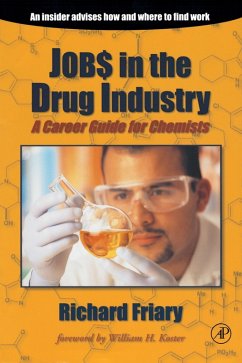This book is intended to help newly graduated chemists, particularly organic chemists, at all levels from bachelors to post-doctorates, find careers in the North American pharmaceutical industry. It will serve as a practical, detailed guiedbook for job seekers as well a reference work for faculty advisers, research supervisors, development officers, employment agents, and personnel managers in the industry. The book gathers in a single volume the fundamentals of getting an industrial job as a medicinal or process chemist, and covers all aspects of a chemist's job--scientific, financial, and managerial--within a pharmaceutical/biotechnology company. Other scientists looking for jobs as analytical or physical chemists and even biochemists and biologists will find the book useful. The valuable appendix is a unique compendium of 365 commercial, governmental, or non-profit institutions that comprise the North American pharmaceutical industry.
Learn How To:
Learn How To:
- Discover the 12 permanent, big-pharma jobs for B.S. chemists
- Use the 500+ company index to locate potential employers
- Track pharma openings with 190+ corporate and chemist-specific job banks
- Add industry veterans to your employment network
- Find the 50+ companies offering paid summer internships to students
- Include the one resume item that wins interviews for B.S. and M.S. chemists
- Express a knowledgeable preference for drug discovery or development
- Research over 360 drug companies through their Web sites
- Discover the 70+ firms offering stock purchase plans or stock options¿and which two represent big pharma
- Find out your salary offer in time to negotiate your wages
Dieser Download kann aus rechtlichen Gründen nur mit Rechnungsadresse in A, B, BG, CY, CZ, D, DK, EW, E, FIN, F, GR, HR, H, IRL, I, LT, L, LR, M, NL, PL, P, R, S, SLO, SK ausgeliefert werden.


